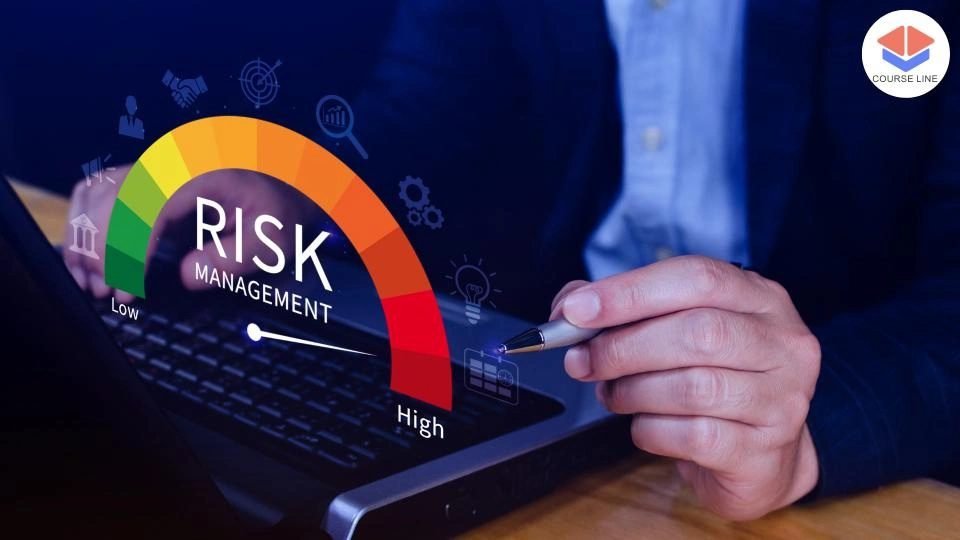Course Features
Price
Study Method
Online | Self-paced
Course Format
Reading Material - PDF, article
Duration
6 hours, 55 minutes
Qualification
No formal qualification
Certificate
At completion
Additional info
Coming soon
- Share
Overview
Who is this course for?
Requirements
Career path
-
- Understanding the Evolution of Risk Management 00:10:00
- Exploring the Importance of Risk Management at an Advanced Level 00:10:00
- Differentiating Between Risk, Uncertainty, and Opportunity 00:10:00
- Ethical Considerations in Risk Management 00:10:00
-
- Conducting Comprehensive Risk Assessments 00:10:00
- Utilizing Quantitative and Qualitative Risk Assessment Approaches 00:10:00
- Sensitivity Analysis and Scenario Planning for Complex Environ 00:10:00
- Incorporating Historical Data and Predictive Analytics 00:10:00
- Deep Dive into COSO ERM and ISO 31000 Frameworks 00:10:00
- Integrating ERM with Strategic Planning and Decision Making 00:10:00
- Aligning Risk Management with Organizational Objectives 00:10:00
- Best Practices for Implementing ERM in Diverse Industries 00:10:00
- Managing Financial Market Volatility and Liquidity Risks 00:10:00
- Advanced Techniques in Credit Risk Assessment and Mitigation 00:10:00
- Derivative Instruments and Strategies for Hedging and Speculation 00:10:00
- Stress Testing and Scenario Analysis for Financial Institutions 00:10:00
- Navigating Evolving Regulatory Landscapes Globally 00:10:00
- Risk Management’s Role in Compliance and Governance 00:10:00
- Anti-Money Laundering (AML) and Know Your Customer (KYC) Practices 00:10:00
- Building Resilience Against Regulatory Changes 00:10:00
- Linking Risk Management to Strategic Planning and Innovation 00:10:00
- Evaluating Risks and Opportunities in Mergers and Acquisitions 00:10:00
- Managing Reputational and Brand Risks in the Digital Age 00:10:00
- Scanning the External Environment for Macro-Level Risks 00:10:00
- Premium Certificate 00:15:00

No Reviews found for this course.
Is this certificate recognized?
Yes, our premium certificate and transcript are widely recognized and accepted by embassies worldwide, particularly by the UK embassy. This adds credibility to your qualification and enhances its value for professional and academic purposes.
I am a beginner. Is this course suitable for me?
Yes, this course is designed for learners of all levels, including beginners. The content is structured to provide step-by-step guidance, ensuring that even those with no prior experience can follow along and gain valuable knowledge.
I am a professional. Is this course suitable for me?
Yes, professionals will also benefit from this course. It covers advanced concepts, practical applications, and industry insights that can help enhance existing skills and knowledge. Whether you are looking to refine your expertise or expand your qualifications, this course provides valuable learning.
Does this course have an expiry date?
No, you have lifetime access to the course. Once enrolled, you can revisit the materials at any time as long as the course remains available. Additionally, we regularly update our content to ensure it stays relevant and up to date.
How do I claim my free certificate?
I trust you’re in good health. Your free certificate can be located in the Achievement section. The option to purchase a CPD certificate is available but entirely optional, and you may choose to skip it. Please be aware that it’s crucial to click the “Complete” button to ensure the certificate is generated, as this process is entirely automated.
Does this course have assessments and assignments?
Yes, the course includes both assessments and assignments. Your final marks will be determined by a combination of 20% from assignments and 80% from assessments. These evaluations are designed to test your understanding and ensure you have grasped the key concepts effectively.
Is this course accredited?
We are a recognized course provider with CPD, UKRLP, and AOHT membership. The logos of these accreditation bodies will be featured on your premium certificate and transcript, ensuring credibility and professional recognition.
Will I receive a certificate upon completion?
Yes, you will receive a free digital certificate automatically once you complete the course. If you would like a premium CPD-accredited certificate, either in digital or physical format, you can upgrade for a small fee.
Course Features
Price
Study Method
Online | Self-paced
Course Format
Reading Material - PDF, article
Duration
6 hours, 55 minutes
Qualification
No formal qualification
Certificate
At completion
Additional info
Coming soon
- Share
Classical Studies Level 8 Advanced Diploma
Course Line238£490.00Original price was: £490.00.£14.99Current price is: £14.99.Medical Secretary Level 8 Advanced Diploma
Course Line238£490.00Original price was: £490.00.£14.99Current price is: £14.99.Creative Thinking and Innovation
Course Line237£490.00Original price was: £490.00.£14.99Current price is: £14.99.
Related Courses
Customer Service, KYC, CDD & Customer Relationship Management (CRM) Diploma
£490.00Original price was: £490.00.£14.99Current price is: £14.99. 238
238Data Protection Level 3 Advanced Diploma
£490.00Original price was: £490.00.£14.99Current price is: £14.99. 241
241GDPR Fundamentals: Data Protection Regulations
£490.00Original price was: £490.00.£14.99Current price is: £14.99. 2505
2505
Related Courses
Customer Service, KYC, CDD & Customer Relationship Management (CRM) Diploma
£490.00Original price was: £490.00.£14.99Current price is: £14.99. 238
238Data Protection Level 3 Advanced Diploma
£490.00Original price was: £490.00.£14.99Current price is: £14.99. 241
241GDPR Fundamentals: Data Protection Regulations
£490.00Original price was: £490.00.£14.99Current price is: £14.99. 2505
2505








